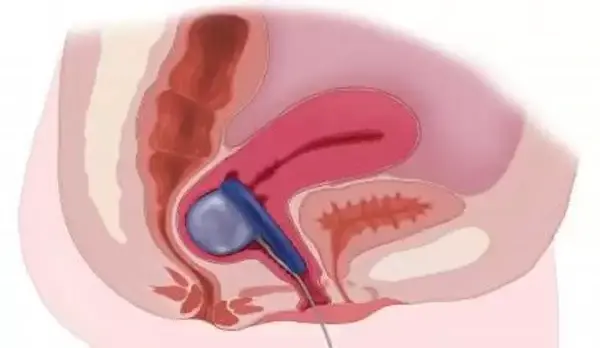Rectal Incontinence at DRHC Dubai
Rectal incontinence, also known as fecal incontinence, is the inability to control bowel movements, leading to the unintentional leakage of stool. This condition can vary from occasional leakage when passing gas to a complete loss of bowel control. It can significantly impact the quality of life, causing embarrassment, discomfort, and social withdrawal. At DRHC Dubai, we provide advanced and compassionate care to diagnose, treat, and manage rectal incontinence, helping patients regain their confidence and control.
Causes of Rectal Incontinence
Rectal incontinence can be caused by several factors, including:
- Muscle Damage: Injury to the anal sphincter muscles, often due to childbirth or surgery, can weaken the muscles, leading to incontinence.
- Nerve Damage: Conditions like diabetes, stroke, or spinal cord injury can damage the nerves that control bowel movements.
- Chronic Constipation: Over time, straining due to chronic constipation can weaken the pelvic floor muscles, leading to rectal incontinence.
- Diarrhea: Loose stools can make it harder for the rectum to hold waste, resulting in leakage.
- Rectal Prolapse: The rectum may protrude from the anus, weakening the muscles and leading to incontinence.
- Aging: As people age, the muscles and nerves in the rectum may weaken, increasing the risk of incontinence.
Symptoms of Rectal Incontinence
- Sudden, uncontrollable urges to pass stool
- Leakage of stool or mucus, particularly after passing gas
- Feeling of incomplete bowel evacuation
- Discomfort, itching, or soreness around the anus
- Social embarrassment and a decline in quality of life
Diagnostic at DRHC Dubai
At DRHC Dubai, our experienced specialists conduct a thorough evaluation to diagnose the cause and severity of rectal incontinence. Diagnostic methods may include:
- Medical History and Physical Examination: Review the patient's symptoms and medical history, and perform a physical examination.
- Anorectal Manometry: Measures the strength of the anal sphincter muscles and the sensation in the rectum.
- Endoanal Ultrasound: An imaging test that evaluates the structure of the anal sphincter muscles.
- MRI Pelvic Floor Scan: Provides detailed images of the pelvic floor muscles and surrounding tissues.
- Defecography: A specialized X-ray to visualize bowel movement and detect abnormalities in the rectum and pelvic floor.
Treatment Options for Rectal Incontinence
At DRHC Dubai, we offer a range of treatment options depending on the underlying cause and severity of rectal incontinence:
1. Lifestyle and Dietary Changes
Mild cases of rectal incontinence may be managed through:
- Dietary Adjustments: Incorporating more fiber to bulk up the stool and reduce diarrhea.
- Pelvic Floor Exercises (Kegels): Strengthening the pelvic muscles can improve bowel control.
- Schedule Bowel Movements: Encouraging regular bowel habits can help manage symptoms.
2. Medications
For patients with diarrhea-induced rectal incontinence, medications may be prescribed, including:
- Anti-diarrheal Medications: Such as loperamide to firm up stool.
- Stool Softeners: For those with chronic constipation, stool softeners can reduce straining.
3. Biofeedback Therapy
Biofeedback is a non-invasive therapy that helps patients improve control over their bowel movements. Sensors are used to monitor muscle activity, and patients learn to strengthen and coordinate their pelvic floor muscles.
4. Surgical Interventions
For severe cases or when other treatments are ineffective, surgery may be necessary. Surgical options include:
- Sphincteroplasty: A procedure to repair a damaged anal sphincter.
- Sacral Nerve Stimulation (SNS): Involves implanting a small device that sends electrical signals to the nerves controlling the anal sphincter, improving bowel control.
- Colostomy: In extreme cases where other treatments have failed, a colostomy may be performed, creating a new route for stool to leave the body through the abdomen.
5. Advanced Therapies
- Injectable Bulking Agents: A minimally invasive treatment where bulking agents are injected into the anal canal to improve muscle tone and prevent leakage.
- Radiofrequency Therapy: A treatment that uses heat to stimulate the tissues around the anal sphincter, improving muscle strength and function.
Why Choose DRHC Dubai for Rectal Incontinence Treatment?
- Expert Team: Our skilled colorectal surgeons and specialists are experienced in diagnosing and treating rectal incontinence with personalized care plans tailored to each patient’s needs.
- Comprehensive Care: We provide a full range of diagnostic and treatment options, from conservative therapies to advanced surgical interventions.
- State-of-the-Art Technology: Our clinic is equipped with the latest diagnostic and treatment technologies to ensure accurate diagnoses and effective treatments.
- Holistic Approach: At DRHC Dubai, we focus not only on treating the physical aspects of rectal incontinence but also on addressing the emotional and psychological impact to improve our patients’ overall well-being.
*Click here for Proctology Surgery Packages*
.png?width=280&height=59&name=bookanappointment%20(1).png)
The proctologist at the proctology clinic at our center provides the best diagnosis of hemorrhoids, hemorrhoid treatment, hemorrhoidectomy, and Laser Surgery for hemorrhoids. Call us at DRHC to book your appointment at +97142798200.




.png?width=280&height=59&name=bookanappointment%20(1).png)
.webp?width=1080&height=1080&name=Doctor%20background%20For%20Website%20Dr.%20Fadi%20Nageeb%2009%20(1).webp)
.webp?width=1080&height=1080&name=Doctor%20background%20For%20Website%20Dr%20Abdul%20Majeed%20Khalid%20%2002%20(1).webp)




